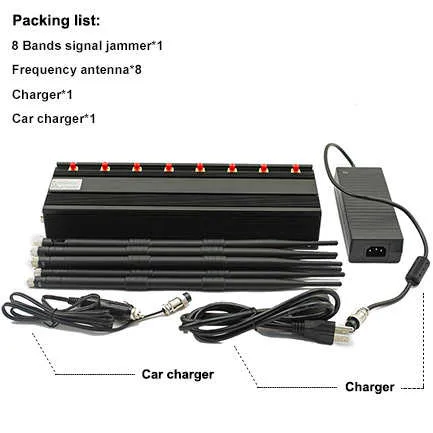For those seeking guidance on building drone jammer, the following instructions will provide the necessary information
Crafting a DIY drone jammer may appear daunting, just like assembling a DIY drone. However, the reality is that constructing a DIY drone jammer is considerably easier compared to building a DIY drone. In this guide, we will elucidate the entire procedure of creating a drone jammer and addressing any potential issues that may arise.
Can you explain the concept of a drone jammer?

Drone jammers are employed to safeguard users and their operational areas by preventing drone jamming. This entails a comprehensive set of telecommunications equipment that can detect, receive, and disrupt drone signals. By incorporating extra drone receivers and transmitters, customers have the flexibility to extend the system to an infinite number of drones simultaneously.
The effectiveness of a drone jammer is determined by the range of frequencies it can block and the power output it can generate. Various types of signal jammers, such as cell phone jammer, WiFi jammers, GPS jammers, GSM/3G jammers, and drone jammers, are specifically designed to target different frequency bands.
Detailed guidelines for creating a drone jammer in a systematic manner
In order to successfully disrupt drone signals, it is crucial to have knowledge of the radio frequencies used by potential drone threats. These frequencies typically include 433Mhz, 900Mhz, 2.4Ghz, 5.2Ghz, and 5.8Ghz. Select the signal transmitter that corresponds to the drone jamming band you require the most.
To create a drone jammer, you must gather the necessary materials such as an RF generator, signal amplifier, power supply components, connection components, and a solid shell protection box.
Adequate practical expertise and assembly skills, along with a comprehensive comprehension of signal jamming equipment, are necessary to create drone jammers.
It is imperative to conduct a thorough examination of the assembled drone jammer to ensure its efficacy in disrupting the drone's operations and determining the extent of its interference capabilities. However, it is crucial to avoid carrying out this testing procedure in densely populated urban areas to prevent any adverse impact on the surrounding communication networks.
Ensuring the responsible utilization of drone jammers is of utmost importance:
To ensure the safety of individuals and property, it is crucial to exercise responsible usage of drone jammers. Here are a few guidelines to follow when employing these devices:
Drone jammers should be utilized sparingly, only in situations where it is imperative to prevent drones from accessing sensitive areas or engaging in unlawful surveillance.
It is important to consider the possible outcomes of utilizing drone jammers. Disrupting radio frequencies can result in harm to individuals and assets, as well as disrupt crucial radio transmissions, including those utilized by emergency responders.
It is imperative to refrain from utilizing drone jammers in a manner that jeopardizes the safety of others, which includes directing the jamming signal towards individuals or structures.
It is essential to familiarize yourself with the laws and regulations pertaining to the use of drone jammers in your locality. Without proper authorization, the use of drone jammers is considered illegal in numerous countries. By employing drone jammers responsibly, you can safeguard against the potential hazards associated with drone usage while ensuring the well-being of others.
If you are inclined towards ready-made drone jammers rather than homemade ones, we recommend giving the Skyfend AFA100 Drone Jammer a try.
